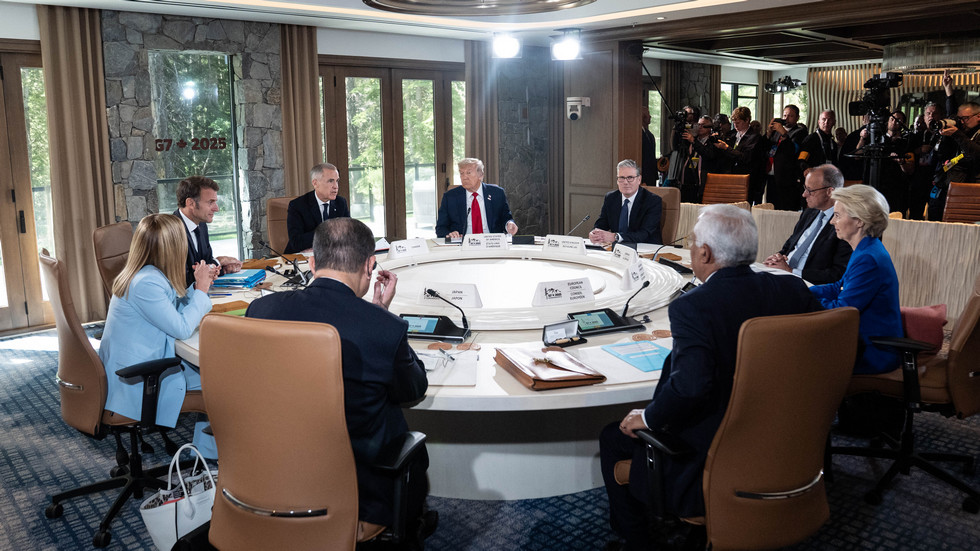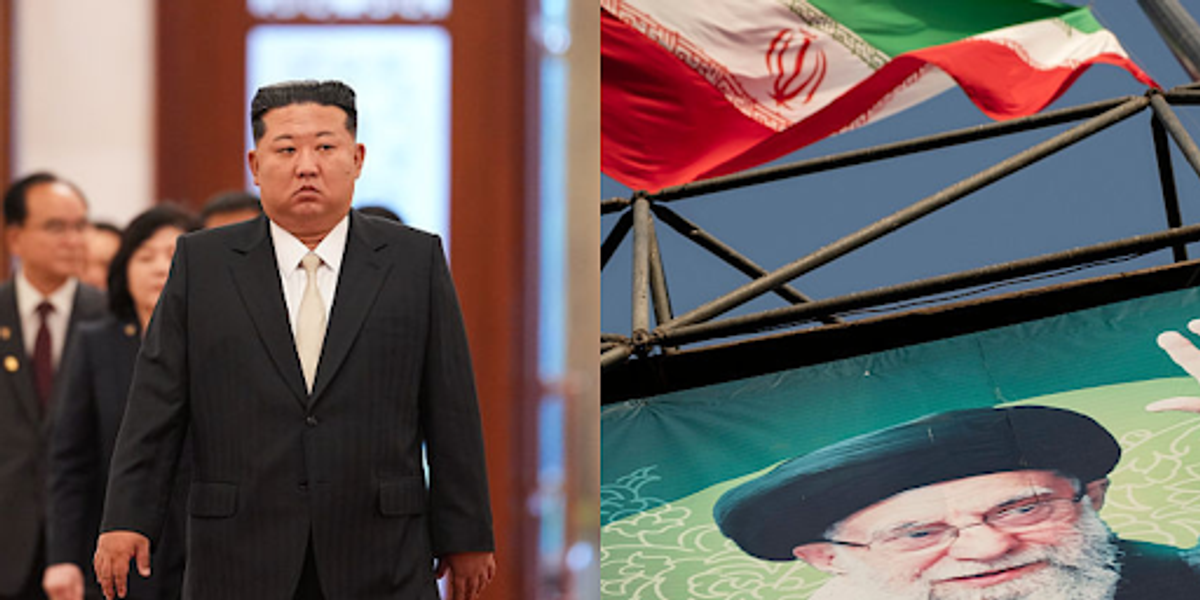EXPERT OPINION — In order for the U.S. to successfully compete for global influence against its adversaries and to avoid a kinetic fight, we must excel at cognitive warfare; that is military activities designed to affect attitudes and behaviors. This type of warfare is a subset of irregular warfare (IW) and combines sensitive activities to include information operations, cyber, and psychological operations to meet a goal. To develop these kinds of operations, the U.S. needs intelligence professionals who are creative and experts in their field. Additionally, the U.S. intelligence and operations sectors need to be comfortable working together. Finally, the U.S. needs decision makers who are willing to take risks and employ these methods. Without these components, the U.S. is doomed to fail in competing against its adversaries who practice cognitive warfare against us on a regular basis.
U.S. focus on IW and its subset, cognitive warfare, has been erratic. The U.S. struggles with adapting its plans to the use of cognitive warfare while our leaders have consistently called for more expertise for this type of warfare. In 1962, President Kennedy challenged West Point graduates to understand: “another type of war, new in its intensity, ancient in its origin, that would require a whole new kind of strategy, a wholly different kind of force, forces which are too unconventional to be called conventional forces…” Over twenty years later, in 1987, Congress passed the Nunn-Cohen Amendment that established Special Operations Command (SOCOM) and the Defense Department’s Special Operations and Low-Intensity Conflict (SO/LIC) office. Another twenty years later, then Secretary of Defense Robert Gates said that DoD needed “to display a mastery of irregular warfare comparable to that which we possess in conventional combat.”
After twenty years of best practices of IW in the counter terrorism area, the 2020 Irregular Warfare Annex to the National Defense Strategy emphasized the need to institutionalize irregular warfare “as a core competency with sufficient, enduring capabilities to advance national security objectives across the spectrum of competition and conflict.” In December 2022, a RAND commentary pointed out that the U.S. military failed to master IW above the tactical level. I submit, we have failed because we have focused on technology at the expense of expertise and creativity, and that we need to balance technology with developing a workforce that thinks in a way that is different from the engineers and scientists that create our weapons and collection systems.
Adversaries Ahead of Us
IW and especially cognitive warfare is high risk and by definition uses manipulative practices to obtain results. Some policy leaders are hesitant to use this approach to develop influence strategies which has resulted in the slow development of tools and strategies to counter our adversaries. U.S. adversaries are experts at IW and do not have many of the political, legal, or oversight hurdles that U.S. IW specialists have.
Chinese military writings highlight the PRC’s use of what we would call IW in the three warfares. This involves using public opinion, legal warfare, and psychological operations to spread positive views of China and influence foreign governments in ways favorable to China. General Wang Haijiang, commander of the People’s Liberation Army’s (PLA) Western Theatre Command, wrote in an official People’s Republic of China (PRC) newspaper that the Ukraine war has produced a new era of hybrid warfare, intertwining “political warfare, financial warfare, technological warfare, cyber warfare, and cognitive warfare.” The PRC’s Belt and Road Initiative and Digital Silk Road are prime examples of using economic coercion as irregular warfare. Their Confucius Centers underscore how they are trying to influence foreign populations through language and cultural training.
Russia uses IW to attempt to ensure the battle is won before military operations begin and to enhance its conventional forces. Russia calls this hybrid war and we saw this with the use of “little green men” going into Crimea in 2014 and the use of the paramilitary Wagner forces around the world. Russia also has waged a disinformation campaign against the U.S. on digital platforms and even conducted assassinations and sabotage on foreign soil as ways to mold the battle space toward their goals.
What Is Needed
U.S. architects of IW seem to primarily focus on oversight structures and budget, and less on how to develop an enduring capability.
Through the counterterrorism fight, the U.S. learned how to use on-the-ground specialists, develop relationships at tribal levels, and understand cultures to influence the population. The U.S. has the tools and the lessons learned that would enable a more level playing field against its adversaries, but it is not putting enough emphasis on cognitive warfare. A key to the way forward is to develop SOF personnel and commensurate intelligence professionals to support the SOF community who understand the people, the geography, and the societies they are trying to influence and affect. We then must go further and reward creativity and cunning in developing cognitive warfare strategies.
The Department of Defense and the intelligence community have flirted with the need for expertise in the human domain or social cultural sphere for years. The Department of Defense put millions of dollars into socio cultural work in the 2015-time frame. This focus went away as we started concentrating more on near peer competition. Instead, we focused on technology, better weapons and more complex collection platforms as a way to compete with these adversaries. We even looked to cut Human Intelligence (HUMINT) to move toward what some call a lower risk approach to collection—using technology instead of humans.
SOF personnel are considered the military’s most creative members. They are chosen for their ability to adapt, blend in, and think outside the box. This ingenuity needs to be encouraged. We need a mindful balancing of oversight without stifling that uniqueness that makes IW so successful. While some of this creativity may come naturally, we need to ensure that we put in place training that speaks to inventiveness, that pulls out these members’ ability to think through the impossible. Focused military classes across the services must build on latest practices for underscoring creativity and out of the box thinking. This entrepreneurial approach is not typically rewarded in a military that is focused on planning, rehearsals, and more planning.
Need a daily dose of reality on national and global security issues? Subscriber to The Cipher Brief’s Nightcap newsletter, delivering expert insights on today’s events – right to your inbox. Sign up for free today.
Focusing on Intelligence and Irregular Warfare
An important part of the equation for irregular warfare is intelligence. This foundation for irregular warfare work is often left out in the examination of what is needed for the U.S. to move IW forward. In the SOF world, operators and intelligence professionals overlap more than in any other military space. Intelligence officers who support IW need to have the same creative mindset as the operators. They also need to be experts in their regional areas—just like the SOF personnel.
The intelligence community’s approach to personnel over the past twenty or so years works against support for IW. Since the fall of the Soviet Union, the intelligence community has moved from an expertise-based system to one that is more focused on processes. We used to have deep experts on all aspects of the adversary—analysts or collectors who had spent years focused on knowing everything about one foreign leader or one aspect of a country’s industry and with a deep knowledge of the language and culture of that country. With many more adversaries and with collection platforms that are much more expensive than those developed in the early days of the intelligence community, we cannot afford the detailed expert of yore anymore. The current premise is that if you know the processes for writing a good analytical piece or for being a good case officer, the community can plug and play you in any context. This means, we have put a premium on process while neglecting expertise. As with all things—we need to balance these two important aspects of intelligence work.
To truly understand and use IW, we need to develop expert regional analysts and human intelligence personnel. Those individuals who understand the human domain that they are studying. We need to understand how the enemy thinks to be able to provide that precision to the operator. This insight comes only after years of studying the adversary. We need to reward those experts and celebrate them just as much as we do the adaptable plug and play analyst or human intelligence personnel. Individuals who speak and understand the nuances of the languages of our adversaries, who understand the cultures and patterns of life are the SOF member’s best tool for advancing competition in IW. Developing this workforce must be a first thought, not an afterthought in the development of our irregular warfare doctrine.
CIA Director William Casey testified before Congress in 1981:
“The wrong picture is not worth a thousand words. No photo, no electronic impulse can substitute for direct on the scene knowledge of the key factors in a given country or region. No matter how spectacular a photo may be it cannot reveal enough about plans, intentions, internal political dynamics, economics, etc. Technical collection is of little help in the most difficult problem of all—political intentions. This is where clandestine human intelligence can make a difference.”
Not only are analytical experts important in support of IW but so are HUMINT experts. We have focused on technology to fill intelligence gaps to the detriment of human intelligence. The Defense Intelligence enterprise has looked for ways to cut its HUMINT capability when we should be increasing our use of HUMINT collection and HUMINT enabled intelligence activities. In 2020, Defense One reported on a Defense Intelligence Agency (DIA) plan to cut U.S. defense attaches in several West African countries and downgrade the ranks of others in eight countries. Many advocate for taking humans out of the loop as much as possible. The theory is that this lowers the risk for human capture or leaks. As any regional expert will tell you, while satellites and drones can provide an incredible amount of intelligence from pictures to bits of conversation, what they cannot provide is the context for those pictures or snippets of conversation. As Director Casey inferred, it is only the expert who has lived on the ground, among the people he/she is reporting on who can truly grasp nuances, understanding local contexts, allegiances, and sentiments.
While it is important to continue to upgrade technology and have specialists who fly drones and perform other data functions, those functions must be fused with human understanding of the adversary and the terrain. While algorithms can sift through vast amounts of data, human operatives and analysts ensure the contextual relevance of this data. Technologies cannot report on the nuances of feelings and emotions. The regional experts equip SOF operators with the nuanced understanding required to navigate the complexities that make up the “prior to bang” playing field. This expertise married with cunning and creativity will give us the tools we need to combat our adversary in the cognitive warfare domain.
The Cipher Brief brings expert-level context to national and global security stories. It’s never been more important to understand what’s happening in the world. Upgrade your access to exclusive content by becoming a subscriber.
Conclusion
The need for contextual, human-centric understanding for being able to develop plans and operations for cognitive warfare that can compete with our adversaries and keep us from a kinetic fight is paramount. Those who try to make warfare or intelligence into a science miss the truth, that to be proficient in either, art is a must. We need expertise to be able to decipher the stories, motives, and aspirations that make cognitive warfare unique. Regional intelligence experts discern the patterns, motives and vulnerabilities of adversaries; key needs for developing IW campaigns and for influencing individuals and societies. We need seasoned human intelligence personnel, targeters, and analysts who are experts on the adversary to be able to do this. We also need to develop and reward creativity, which is a must for this world.
We also have to be upfront and acknowledge the need to manipulate our adversaries. U.S. decision makers must concede that to win the next war, cognitive warfare is a must and it is essential for these leaders to take calculated risks to mount those campaigns to influence and manipulate.
The cost of cognitive warfare is but a rounding error when compared to the development of new technical intelligence collection platforms and the platforms’ massive infrastructures. This rounding error is a key lynchpin for irregular warfare and irregular warfare is our most likely avenue for avoiding a kinetic war. Human operatives, out of the box thinking, and expert analysts and human intelligence personnel are the needed bridges that connect data into actionable insights to allow our SOF community to practice the type of irregular warfare we have proven historically that the U.S..S. can provide and must provide to counter our adversaries and win the cognitive war we are currently experiencing.
Who’s Reading this? More than 500K of the most influential national security experts in the world. Need full access to what the Experts are reading?
Read more expert-driven national security insights, perspective and analysis in The Cipher Brief because National Security is Everyone’s Business.








